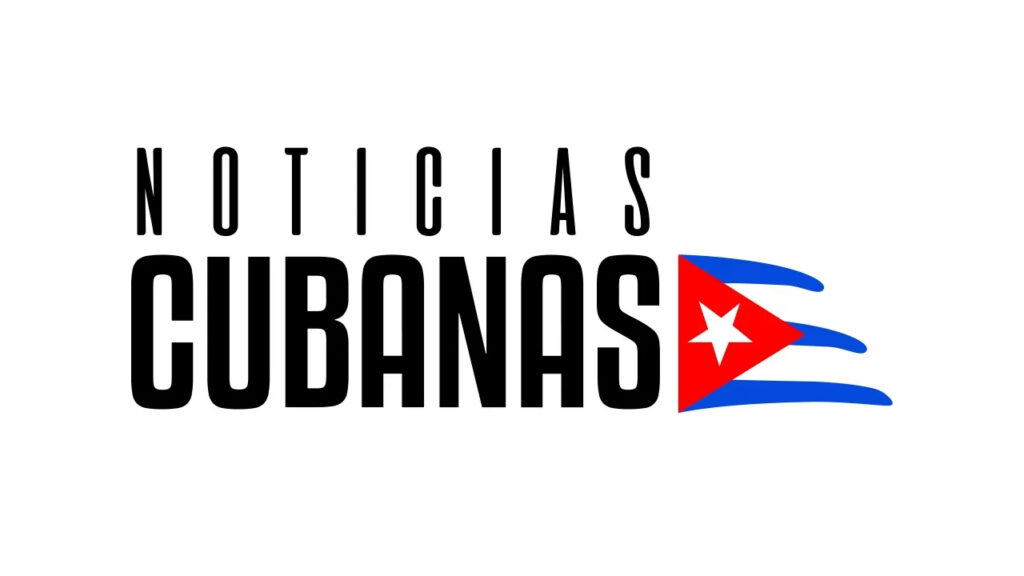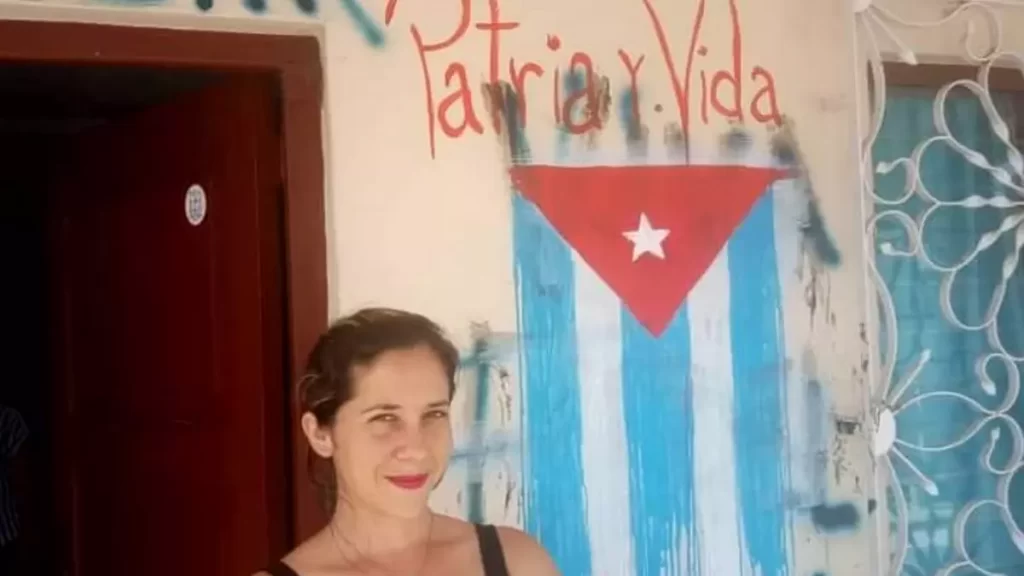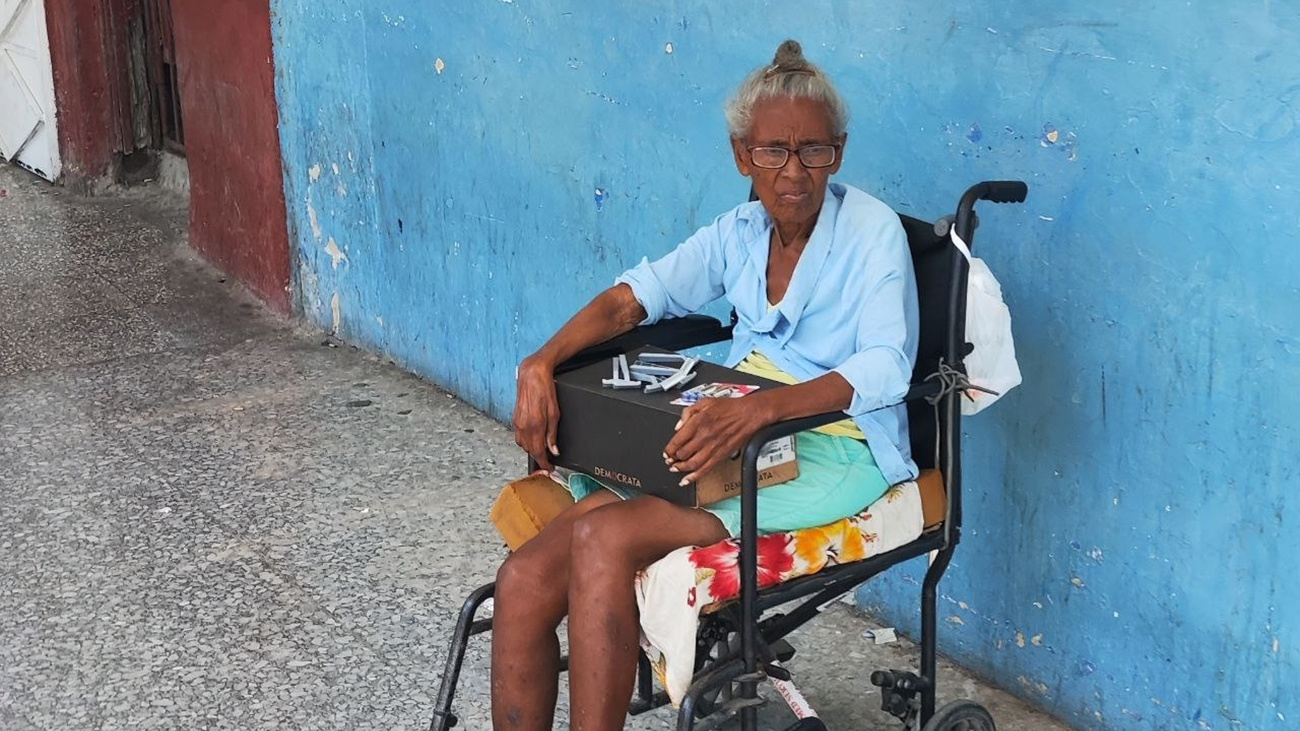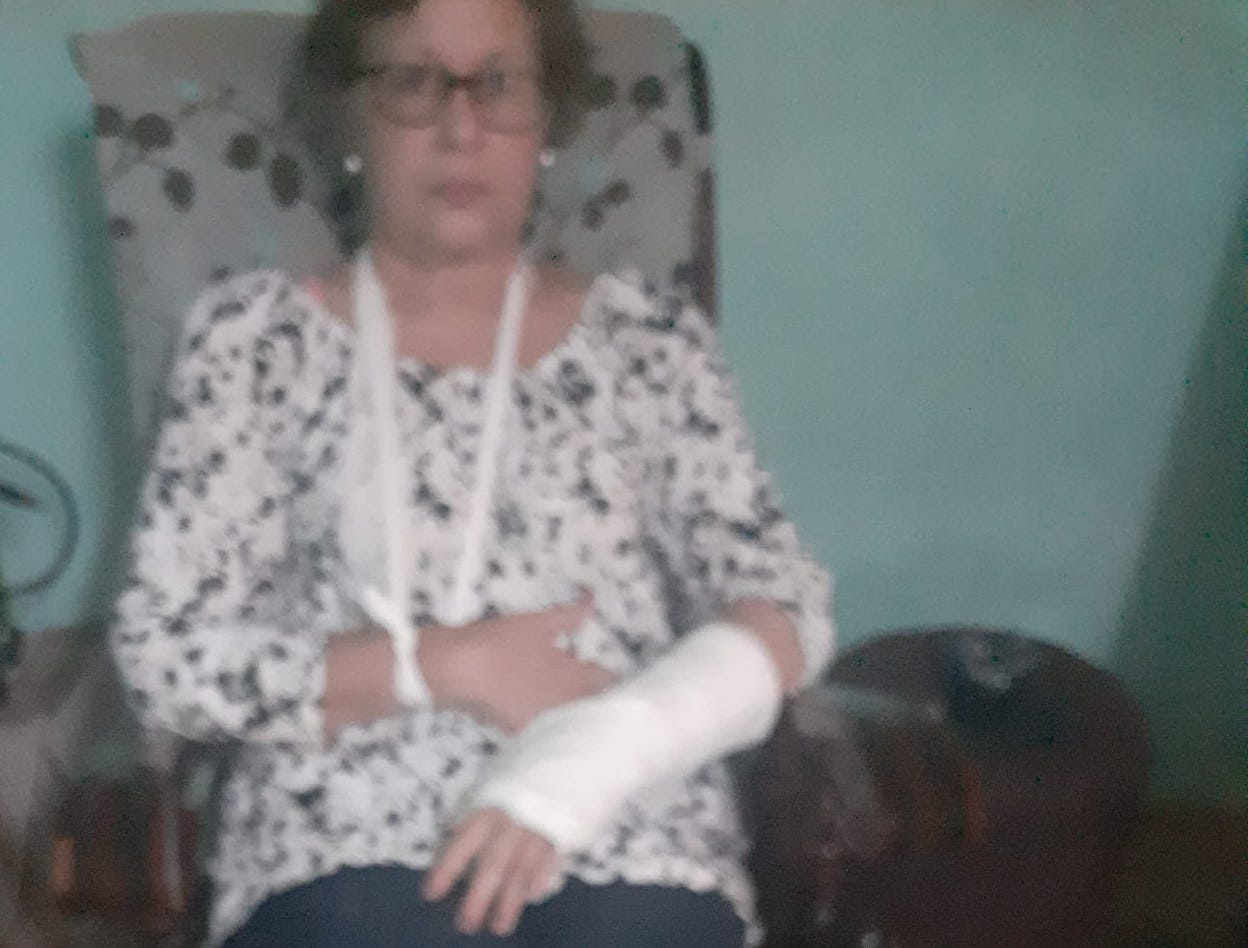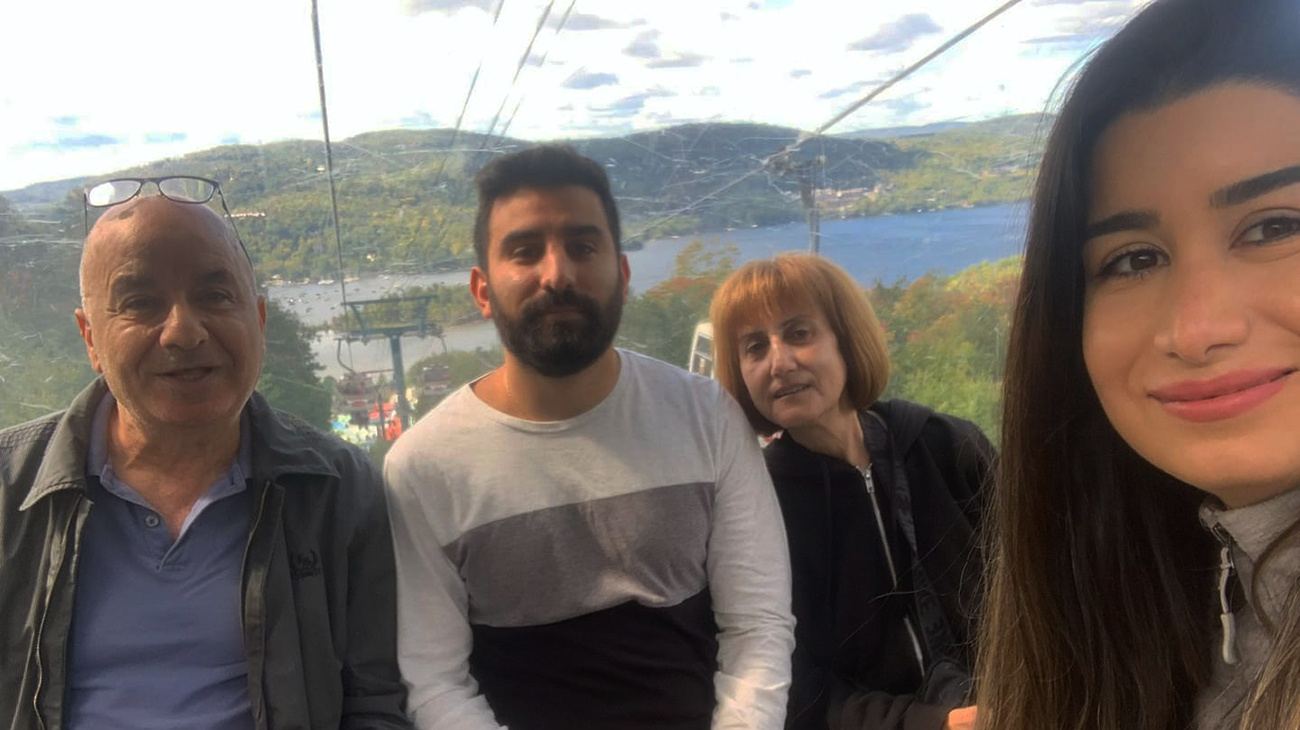Noé was somewhere on the outskirts of the gritty southern Mexican city of Tapachula when he realised how difficult his journey to a new life in the US would be.
Just days after crossing the border from Guatemala, the meagre supplies in Noé’s small rucksack had dwindled, and he had gone with barely any food for several days as he bussed and trudged across the humid, forested landscape of Mexico’s Chiapas state, where temperatures rose to a sweltering 34 C during the day.
Already reeling from exhaustion and an empty stomach, Noé then faced another hazard: corrupt and abusive members of Mexico’s security forces, who he said repeatedly strong-armed migrants for “mordidas” – a Mexican term for “little bites”, or bribes – at roadblocks.
“Mexico was very hard,” he said. “The police were bad. They looked for people to take their things and chased us. They charged us bribes when we were already all hungry and tired”.
This, despite having paid a group of smugglers several thousand dollars for the 2,000-mile (3,332km) trip from his home on the banks of the San Juan River in southern Nicaragua through Honduras, Guatemala, and Mexico – a small fortune for a man from a country where the average income per person stands at around $1,850 (£1,533) per year.
Several weeks after his journey began, Noé – a stocky and muscular figure whose sun-beaten face and reserved demeanour makes him seem older than his 38 years – was crossing the murky green waters of the Rio Grande into Texas aboard a small rubber raft alongside migrants from as far afield as Ecuador and Colombia, including young children and their mothers.
“It was very scary,” he said. “I can swim, but the river is stronger than it looks. And it was dark.”
Safely on the US side, Noé voluntarily surrendered to Border Patrol agents. Detention came as a relief. After a few weeks, he was released into the country to wait for a court date to decide his future in the US.
“Here one feels protected. They [US authorities] even fed us well,” he told the BBC at a migrant shelter in Texas. “It was hard, but I couldn’t have stayed in Nicaragua”.
Noé is not alone in feeling this way. Privation and poverty have been known to many Nicaraguans like Noé for a long time.
But a recent crackdown on civil society, a faltering economy and an atmosphere of terror instituted by the country’s long-serving president, Daniel Ortega, is now driving many to leave.

US Border Patrol figures highlight the growing flood: a record number of nearly 19,000 were taken into custody in May, up from 12,600 in April and 16,000 in March. All told, a record high number of about 111,000 Nicaraguans have been detained entering the US so far in the 2022 fiscal year, compared with 50,722 in all of 2021 and just 3,164 in 2020.
Soon after being released from custody, Noé joined dozens of other migrants in temporary housing at a non-profit humanitarian shelter in Laredo, nestled in a quiet residential neighbourhood just 1.5 miles (2.4km) from the Mexican border.
On a sweltering hot Monday morning in late May, he was among dozens of people – mostly men in their 20s and 30s – milling around a courtyard. Some were stretching in the Texas sun, while others used mobile phones to call friends and family back home or in the US.
While a smattering of Colombians and Venezuelans were there, the vast majority were Nicaraguan.
A climate of fear

The stories shared by Nicaraguans at the shelter have two common themes: a struggling economy and fear of the government of Daniel Ortega, the leader of Nicaragua’s 1979 Sandinista revolution who earlier this year was sworn into a fourth consecutive term as President.
Affectionately known as Comandante Daniel to his supporters, Mr Ortega has long been accused of abandoning the revolution’s ideals by turning into a dictator, harshly suppressing any opposition.
These crackdowns have become more pronounced since Mr Ortega was returned to office in November, in an election that saw opposition candidates arrested or exiled alongside prominent regime critics, journalists, business leaders, human rights advocates and students.
Since then, the clampdowns have continued and escalated, with the UN’s human rights chief warning that new criminal legislations are being used to persecute perceived opponents of the Ortega government.
In one week in early June alone, almost 200 civil society and non-governmental organisations were shut down in what the Paris-based Observatory for the Protection of Human Rights Defenders said was an attempt to eliminate “all social and political vision that differs from that established by the regime”.
The harsh measures imposed by the Ortega regime prompted the US government to announce that Nicaragua would not be invited to the recent Summit of the Americas in Los Angeles. A senior administration official cited a “lack of democratic space” as the reason.
The Nicaraguan American Human Rights Alliance, which helps citizens who have fled the country, has been inundated with daily inquiries from citizens who’ve drawn the ire of Mr Ortega’s government, according to its president, Anita Wells.

Any opposition – real or imagined – is considered a “sin” by the authorities, she said, often with disastrous economic consequences for working class Nicaraguans.
“They don’t let you work if you’re part of the opposition,” explained Ms Wells, herself part of an earlier wave of Nicaraguan refugees from the 1980s. “They won’t renew your business license. Or, if you’re a farmer, they won’t buy your product to be exported. That’s part of the reason Nicaraguans are leaving the country”.
The Nicaraguan government did not respond to a BBC request for comment.
Ms Well’s comments were echoed by a Nicaraguan academic who asked not to be identified, citing fears of retaliation from the government.
“The reality is that ordinary, working-class people have been the most exposed to the full brunt of regime oppression,” he said. “The threshold for being subject to retaliation is extraordinarily low”.
The consequences of crossing the government vary widely. In some cases, workers are fired by their employers who deem the risk of having potential dissidents on their payrolls too high. In other cases, government agents harass customers and employees.
“Or maybe you’re just picked up by paramilitary forces and threatened with death,” the academic said. “You don’t even need to be personally victimised. It might just be the case that you saw family members subjected to this and you feel it’s not safe to stay”.
A dangerous journey

Faced with these conditions, an increasing number of Nicaraguan citizens are choosing to leave. Comments on Nicaraguan news outlets – mostly those now operating from outside the country – are peppered with questions from those seeking to go.
Some are taking practical steps to prepare. According to Reuters, dozens of would-be migrants in the Nicaraguan town of Esteli have been signing up for swimming classes offered on social media in anticipation of crossing the fast-moving waters of the Rio Grande at the end of a long trek to the United States.
But many migrants have little idea of the dangers that they may face.
The risks were starkly highlighted on 1 May by the death of Calixto Nelson Rojas, a Nicaraguan radio host, whose death by drowning in the Rio Grande near Eagle Pass was caught on video by a Fox News cameraman.
About two weeks later, a three-year-old Nicaraguan girl went missing after her 25-year-old mother drowned crossing the river. While the mother’s body was recovered, the little girl has still not been found.
Justine Ochoa, a Texas-based Nicaraguan activist, told the BBC that her group is aware of nearly 30 Nicaraguan citizens who have perished since the start of the year.
“Smugglers tell them it’s a good time, or that people are crossing over easily. But that’s not the truth,” she said. “We know that a one or two people this year have died in accidents. Two were murdered by criminals on the Mexican side. But they mostly just drown in the river”.
Ms Wells said that even those who understand what is at stake are likely to continue to take enormous risks to pursue “the myth of the American dream”. She often advises people still in Nicaragua to not go.
“It is a myth, because it’s not easy, even if you do cross the border. People sometimes have the wrong impression, that this is Disneyland,” she said. “I always ask them if it was worth it…they say that if they die, they die, but at least they’d have tried. Imagine the desperation. They’d rather die than return to Nicaragua.”


